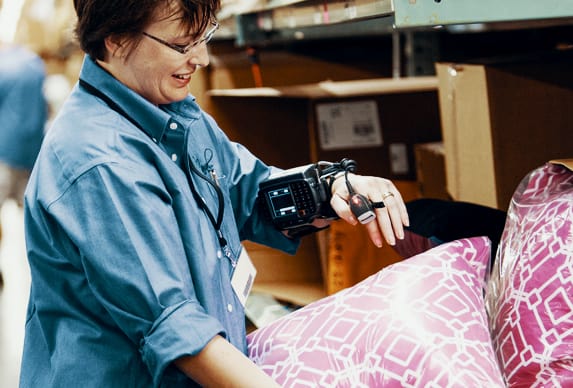What is merchandise?
Merchandise (or merch) is a product that can be bought or sold. For example, all products you see in a supermarket are merchandise bought from a manufacturer for selling to customers. Merchandise can be any goods for sale like clothes in a clothing shop or phones in an electronics store.
Why care about merchandise?
In today’s society, merchandise makes the world go around and fulfills our economic needs. Without merchandise, it’s difficult for modern consumers to survive. Everything, whether you consider it a want or a need, is merchandise. Companies need merchandise to sell and make profits. Merchandise is important because all our needs are met with their help.
What is wholesale merchandise?
Wholesale merchandise is a lot of products reserved for retailers rather than end customers. A distributor or wholesaler sells the wholesale merchandise as it involves the sale of goods to anyone but the end buyer.
What is merchandise inventory?
A merchandise inventory is a list of all products a company buys to resell to consumers for a higher price. Wholesalers, distributors, and retailers purchase items from manufacturers to resell them via physical storefronts or online. Retailers intend to sell their merchandise inventory to consumers, whereas distributors and wholesalers aim to sell it to retailers.

Types of merchandise
There are four main types of merchandise from the point of view of a retailer. These include:
- Convenience merchandise: This is anything the customer cannot survive without. These items can be bought from anywhere and mainly include food and hygiene goods.
- Impulse merchandise: Unlike convenience, impulse merchandise is add-on products that a customer may buy in the supermarket. These are also known as luxury items. Impulse items include sweets, magazines, etc.
- Household merchandise: These are high-intent and high price products that require research and thought work before buying. Retailers sell less stock of this merchandise, so they price them accordingly to make attractive profits. Such items include smartphones, washing machines, furniture, etc.
- Specialized merchandise: This refers to niche products that customers buy less often but spend more money on. This category may include holidays or luxury cars.
What is branded merchandise?
Any product that contains the logo of a brand on it is called branded merchandise. You can find branded merchandise in stores (like perfumes) and online (consider Google and YouTube selling their online products). Musicians probably benefit the most from branded merchandise as they can put their logo on anything and make profits from it.
Branded merchandise offers the following benefits:
- For a company selling branded merchandise, it creates an extra revenue stream from a logo on a product.
- People walking around town wearing your logo can market your brand for free. People are more inclined to remember a logo they saw on someone’s t-shirt, creating more brand recognition.
- People possessing branded merchandise associate themselves with the brand and engage with it accordingly. In luxury brands, businesses thrive by building a niche community of buyers loyal to the brand.
What is the difference between merchandise and merchandising?
Merchandise is a product that is bought or sold. It is a concept that runs today’s economy. On the other hand, merchandising is the act of promoting a product to make people buy it. Merchandising entails promotions, a giveaway, or creating a nice display for some products.
An example of merchandising: a supermarket just received the shipment of a new shampoo, so they put it in a special section and highlight it for everyone to see. There may be special offers to entice buyers to buy the shampoo.